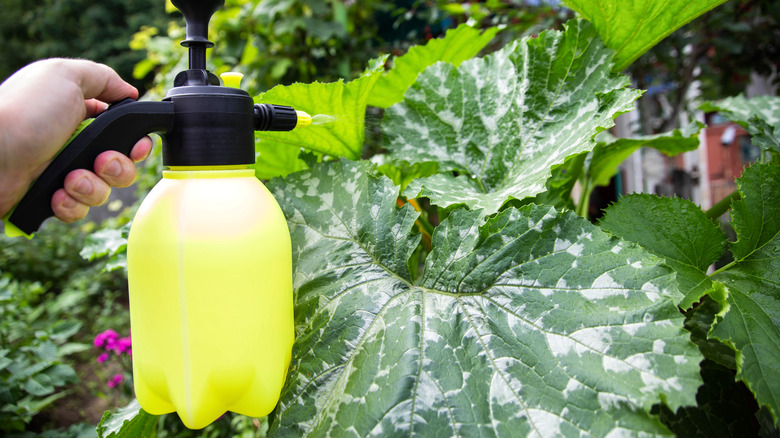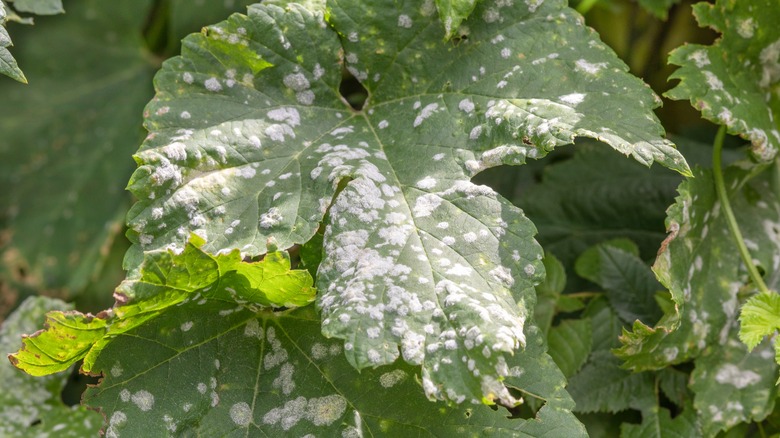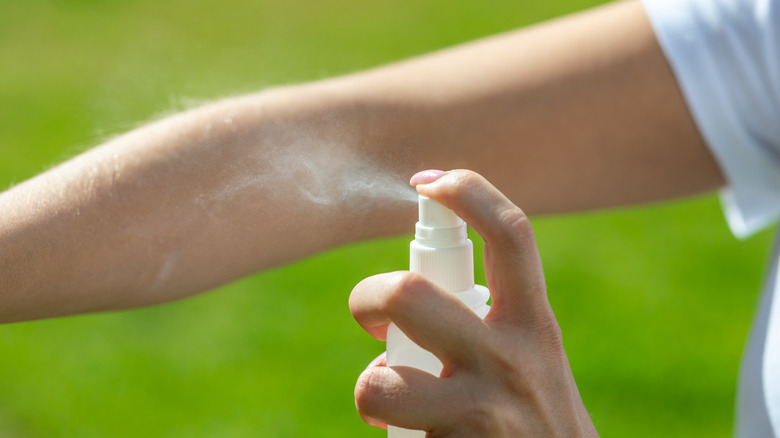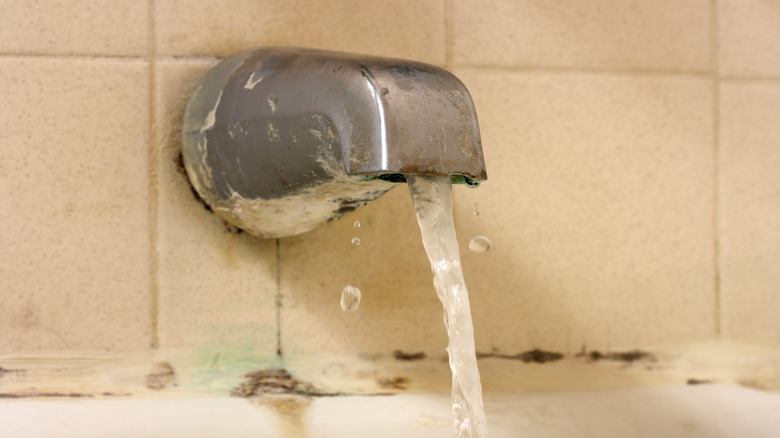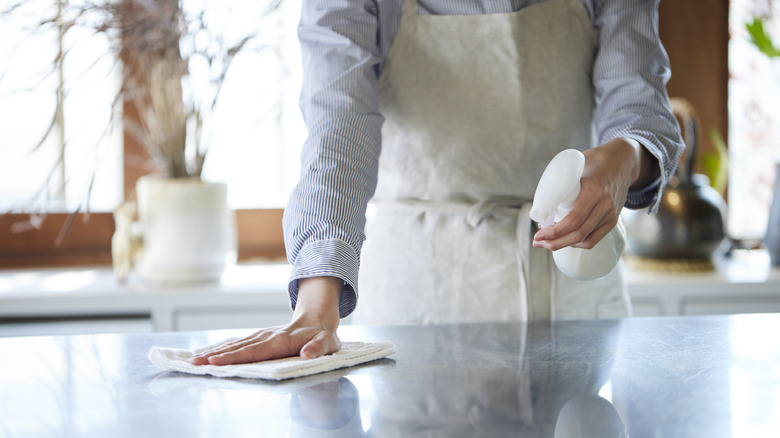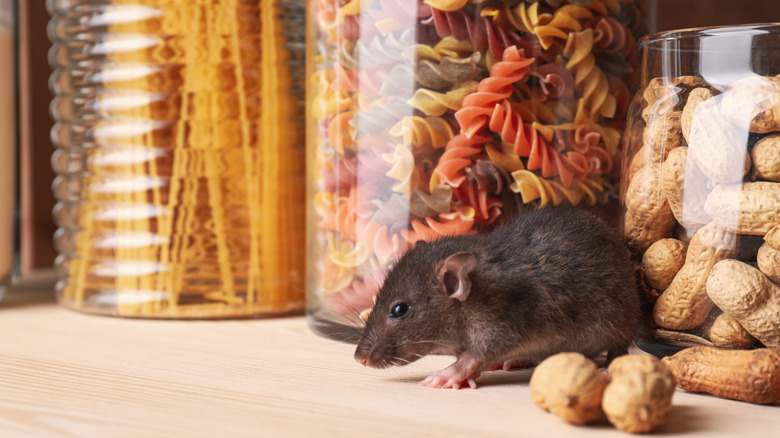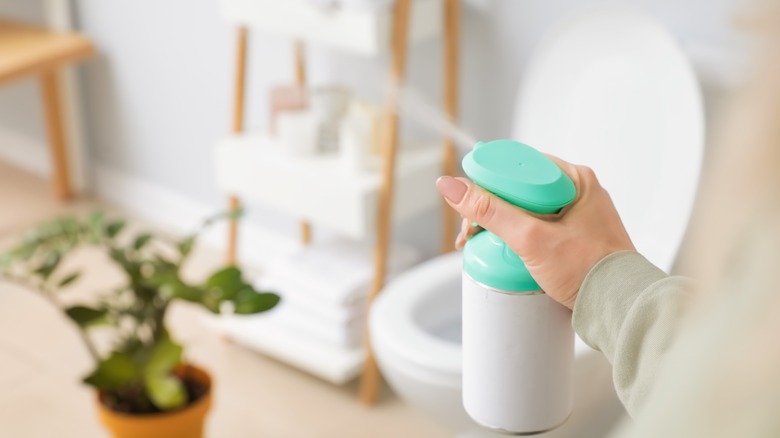All The Ways You Should Be Using Cinnamon Essential Oil Around Your Home & Garden
In an effort to maintain healthy homes and a healthy planet, many people look to natural substances as alternatives to chemical-laden products. Cinnamon essential oil (CEO) is one of those all-natural items that serves multiple purposes around the home and garden. The oil is derived from the bark of the Cinnamomum zeylanicum tree, found in Sri Lanka, India, Jamaica, and Brazil. CEO demonstrates active properties that fight against bacteria, viruses, fungi, and mold.
Cinnamaldehyde and eugenol are two of the main compounds in CEO. They give cinnamon essential oil its power to fight the pathogenic bacteria that cause infections and disease. For this reason, it's an effective cleaning agent for inside the home. Along with its reputation as a natural antibacterial substance, CEO is known to be an insect repellent and fungus killer, making it useful for application in the garden and patio area. As an added bonus, the oil boasts a pleasant scent that may lift your mood as you apply it in and around your home. Be careful when using CEO with children under age 10, as the oil is not recommended for skin contact or inhalation by little ones.
Use cinnamon essential oil for weed control in the garden
Cinnamon essential oil can tackle problems outside in your garden — not just indoors. For gardeners who prefer organic methods, it's a preferred option for killing weeds without spreading chemicals around the yard. Through scientific experiments, researchers determined that CEO is an effective, natural herbicide (via Cambridge University Press). In a comparative study, CEO outperformed other essential oils, like lavender and peppermint, in its ability to inhibit weed germination (via Italian Journal of Agronomy).
CEO contains 5% to 10% percent eugenol, a naturally-occurring chemical component of cinnamon bark. It's this chemical that makes the oil a herbicide. To apply CEO to weeds, you can mix a few drops of the oil with water in a spray bottle and spray it directly on the unwanted plants. As an optional recipe, you can mix 1 ¾ cups white vinegar, ¼ cup castile soap, and 3 drops each of cinnamon, wintergreen, clove, and orange essential oils. Spray the weeds liberally and repetitively, as a high dosage of CEO will increase its herbicidal effectiveness.
Protect plants from fungal diseases
In addition to killing weeds, cinnamon essential oil kills various fungi that cause diseases in plants. For this reason, it serves as a preventive substance for plant care. Gardeners of both indoor and outdoor plants find that CEO works best as a fungicide when it's applied directly to the body of the fungus in the form of a spray.
Researchers have concluded that CEO serves as a natural, fungicidal treatment for tomatoes, corn, cucumber, pepper, and other plants (via Molecules). Both the cinnamaldehyde and eugenol ingredients in CEO contribute to its fungi-killing capacity. CEO is highly concentrated and must be diluted in water to safely spray it onto your plants. Dissolve 1 teaspoon of the oil in 1 quart of water to make a fungicidal spray that will not harm the plants. Keep in mind that if it's applied in too high a concentration, CEO may act as a herbicide.
Make a DIY insect repellent spray
If you're looking for a natural insect repellent that substitutes for the commercial insecticides containing chemicals, you might investigate cinnamon essential oil. CEO is proven to be a potent killer of mosquito larvae, preventing them from hatching into flying biters. You can make an outdoor spray by diluting 20 drops of CEO in 2 cups of water. Use it to control the mosquito population in your backyard and patio area.
CEO is additionally effective in repelling ants, although it does not kill them. The essential oil has a stronger odor than cinnamon sticks or powder, and ants hate the smell. As a natural deterrent, you can apply the oil directly to indoor and outdoor areas where you see ant activity. Replenish it after rain or after the scent dissipates. In the garden, CEO will deter slugs, thrips, aphids, whiteflies, and spider mites from feasting on your vegetable and fruit plants.
Cinnamaldehyde, eugenol, and other compounds in CEO combine to act as an insecticide and repellent. Be sure to use 100% pure CEO for repelling insects. Although the scent is overwhelming and repugnant to many insects, CEO does not kill bees and other helpful pollinators.
Fight mold and mildew in the home and garden
Mold and mildew are living organisms that can create unhealthy conditions both inside and outside your home. One of the ways to halt the growth of these invaders that thrive in moist environments is to apply cinnamon essential oil. In the shower and other areas of the bathroom, you can use CEO as a spray or a scrub to kill the mold. Used in a diffuser, CEO fights mold spores as they circulate throughout the air. In the garden, you can apply CEO directly to the stems of plants to prevent mold growth. Keep in mind that CEO can be toxic to pets, so take precautions to keep your furry friends away from the oil.
The organic compound known as cinnamaldehyde kills mold and mildew. With a composition of 71.5% cinnamaldehyde, CEO is a natural mold killer and proves to be an effective agent to halt the growth of mold on both harvested vegetables and baked goods . In the same study published by Molecules, CEO was tested against 49 other essential oils and found to be most effective in killing the gray mold that grows on plants in the garden.
Add cinnamon essential oil to homemade cleaning solutions
Cinnamon essential oil boasts several properties that make it a natural cleaner for your home. CEO is not toxic to humans, it exudes a scent that (most of us) find pleasant, and it kills bacteria. On top of that, the oil works to remove odors from household materials. For a simple cleaning spray, you can use a few drops of CEO dissolved in water. After spraying, let it sit for an hour before wiping away any residue. As an alternative, you can create a homemade cleaner by mixing 15 drops of CEO, 15 drops of orange essential oil, 5 drops of clove oil, and 1 tablespoon of white vinegar in ¾ cup of distilled water. Pour the mixture into a spray bottle and shake well. Use this natural cleaner as you would any multi-surface cleaning product.
Cinnamaldehyde and eugenol are the active compounds in CEO for guarding against the growth of bacteria on surfaces in your home. In a study published by BMC Complimentary Medicine and Therapies on the antibacterial activity of essential oils, researchers concluded, "Cinnamon oil can be a good source of antibacterial agents." Notably, the results of a separate study reveal that CEO is an effective disinfectant to kill one of the main bacterial causes of Legionnaires' disease (via New York State Integrated Pest Management and Cornell University). Based on these scientific findings, you can rest assured that CEO is an effective additive for homemade cleaners.
Use cinnamon essential oil to halt the spread of germs in your home
If you're interested in maintaining a healthy environment for your family without introducing heavy chemicals, you might add cinnamon essential oil to your toolbox of substances that kill germs. Add a few drops of the oil to a damp cloth and use it to wipe tables, countertops, doorknobs, light-switch plates, and anywhere that germs might lurk in your home. As an alternative, you can add CEO to a spray bottle of water and mist it onto surfaces. It's a helpful precaution, especially when a family member has been sick. Using CEO can help to prevent the pathogens from spreading to other family members.
Researchers find that CEO fights against the pathogenic microorganisms that cause infectious diseases in humans (via Molecular Diversity Preservation International). In fact, CEO is proven to be a successful agent to inhibit the growth of the E. coli, S. aureus, and P. aeruginosa strains of bacteria that cause illnesses (via Society of Pharmaceutical Education & Research), and is effective against the Streptococcus mutans bacterium that causes oral and dental infections. With its reputation as a germ fighter, CEO can contribute to a healthy home environment for your family.
Prevent a rodent infestation in your home with applications of cinnamon essential oil
While making your home a healthy place for its human inhabitants, you want to make it unattractive for animal pests. That's where the scent of cinnamon essential oil comes in as a handy rodent repellent. First, look for droppings or gnawed surfaces to discover where the animals are getting into your home. Possible locations include cracks and crevices around windows and doors. Then, place CEO-soaked cotton balls at those points of entry. Replenish the oil-soaked cotton balls regularly until you no longer see evidence of rodent activity.
Using CEO as a repellent is a humane way to head off a rodent problem without poisoning or killing the animals. While most humans like the scent of cinnamon, mice and rats hate it. On top of that, the animals possess a sense of smell that is much keener than ours, making the CEO overpowering and repugnant to them. As a result, the application of the essential oil can act as a preventive measure to guard against an infestation. Before they take up residence, the mice and rats will move on, looking for a more hospitable home that does not smell like cinnamon.
Mix a DIY air deodorizer for your home
Cinnamon can remind us of baked goods and holiday gatherings, and for that reason, it's a pleasant substance for a DIY air freshener. You can make a handy room-deodorizer spray with this recipe from Mary Taylor Naturals. In a spray bottle, combine ¾ cup water, 4 tablespoons witch hazel, 5 teaspoons vanilla extract, 5 drops of cinnamon essential oil, and 10 drops of orange essential oil. Shake the bottle well to mix the ingredients and spritz it into the air. As an alternative, you can add a drop of CEO to a sachet and pop it into your dresser drawer to freshen your clothes. Or, place a drop on a bouquet of dried flowers to freshen the air in a room.
Although CEO introduces a welcoming scent to the air in your home, it's not a perfume. CEO doesn't simply mask odors, it neutralizes them. Keep in mind that many of the unpleasant smells you detect in your upholstery, carpets, and other areas of the home are caused by the presence of bacteria, mold, and mildew. With CEO's antibacterial and anti-fungal properties, it's a natural odor neutralizer and air freshener .
